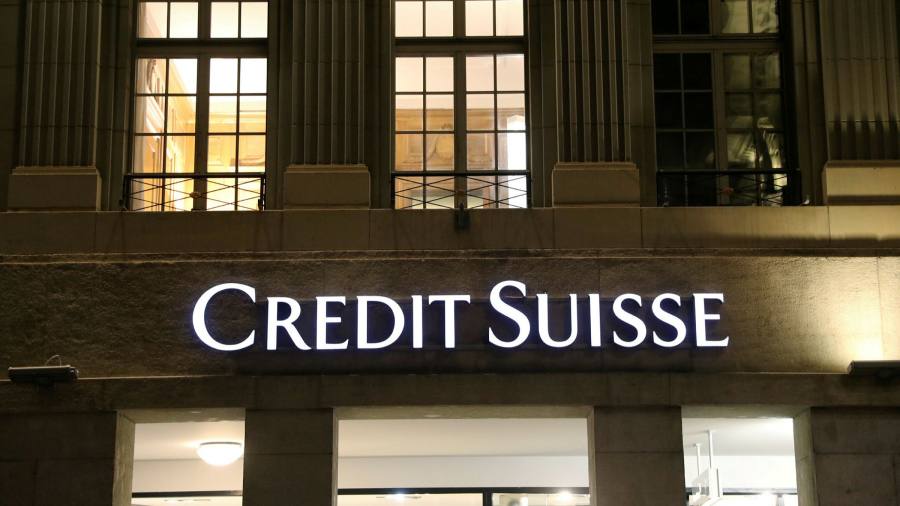[ad_1]
Credit Suisse will overhaul its asset management business and suspend bonuses for some senior executives, as the bank races to contain the damage from the collapse of supply chain finance company Greensill Capital.
The Swiss lender had multiple ties to Greensill, including $10bn of funds that offered exposure to the company’s loans and were marketed to the bank’s clients as safe investments.
Laying bare the fallout from the deepening scandal, Credit Suisse warned on Thursday that fund investors have threatened litigation, that it could lose clients and the ultimate cost to the bank may be “material†for its operating results.
Finma, the Swiss regulator, has also imposed a higher minimum capital buffer on Credit Suisse to cope with any losses. The lender told the FT its capital levels were already above the new required level and that its plans to return money to shareholders through buybacks were unaffected.
Greensill, which was backed by SoftBank, filed for administration last week after its insurer refused to renew $4.6bn of insurance for its loans. Credit Suisse suspended $10bn of the funds linked to Greensill at the start of March.
Credit Suisse said its board had begun an investigation into its ties with Greensill, adding that it would also consider clawing back previously paid bonuses. The controversial supply chain funds were housed within its asset management division, which will now be separated from its international wealth management unit, where it had previously sat.
The bank plans to draft in Ulrich Korner, the former head of rival UBS’s asset management division, to lead the unit, replacing Eric Varvel, who will continue at the group in other roles. Korner will report directly into chief executive Thomas Gottstein.
“The compensation committee is monitoring developments closely and will determine, based on investigation results, any appropriate actions to be applied,†the bank said.
Gottstein said that “I am confident that [Korner] can greatly contribute to the work to be done in the current situation and will lead the new asset management division to future success.â€
Credit Suisse had long considered separating its asset management division from wealth management. The possibility was first raised when the unit performed strongly, but a series of losses for the business over the past year have brought greater scrutiny.
Andreas Venditti, an analyst at Vontobel, said the organisational change would mean any future losses from the Greensill funds would not affect Credit Suisse’s prized wealth management business. But he added: “Significant concerns and open questions related to the amount of potential charges and severity of litigation risks remain.â€
Senior managers at the bank are facing tough questions over how much they knew about Greensill’s dealmaking and whether they took on too much risk.
The Financial Times reported last week that Credit Suisse risk managers were overruled by executives when they raised concerns about extending a $140m bridging loan to Greensill in October. Lara Warner, the bank’s chief risk and compliance officer, eventually signed off the loan.
Credit Suisse has removed three executives at the centre of the crisis.
Michel Degen, head of asset management in Switzerland and Europe, the Middle East and Africa, Luc Mathys, head of fixed income in the region, and Lukas Haas, a portfolio manager for the funds, have been placed on temporary leave.
The bank has drafted in experts from Swiss law firms and management consultancies as it attempts to quantify the financial hit and contain the reputational damage.
The bank’s annual pay report released on Thursday showed that pay for Gottstein, who became Credit Suisse chief executive just over a year ago, was cut back by 20 per cent compared with that of his predecessor, Tidjane Thiam, after profits fell. Bonuses for the entire executive board were 30 per cent lower.
[ad_2]
Source link





